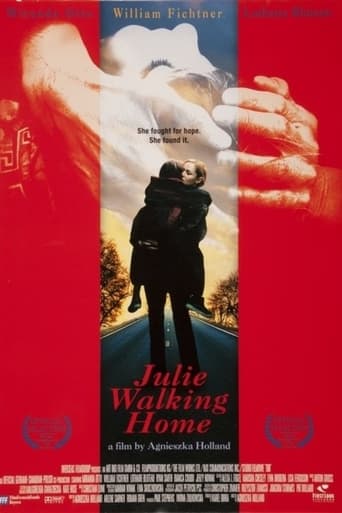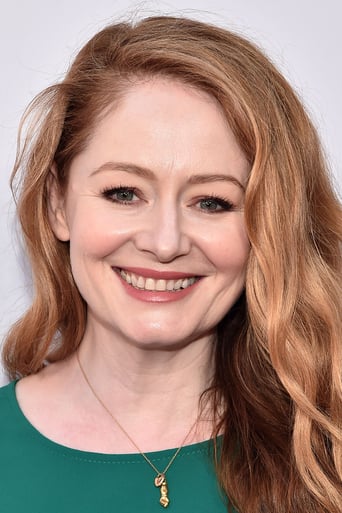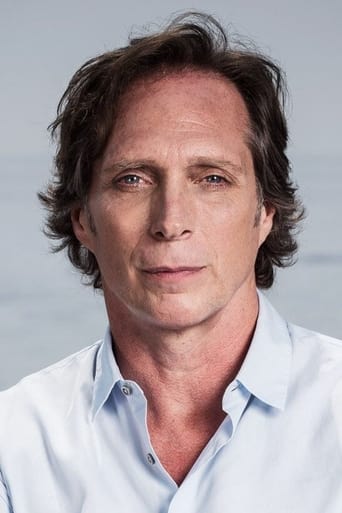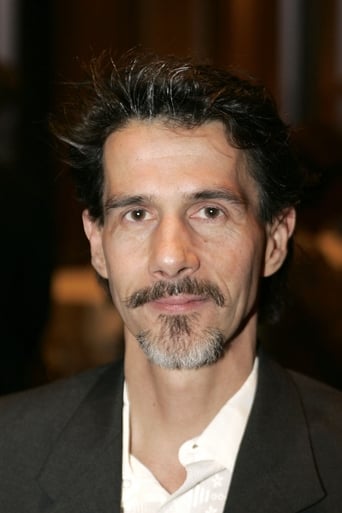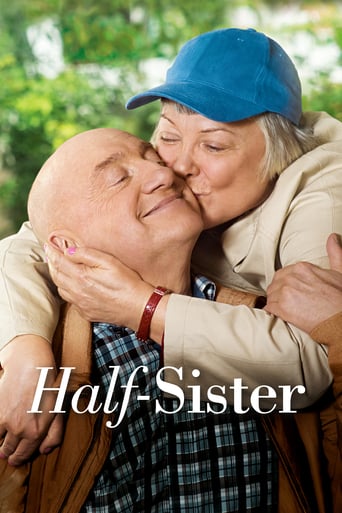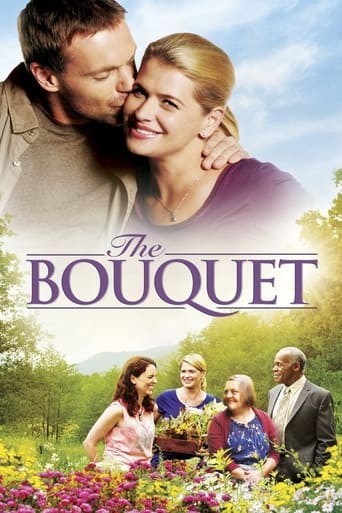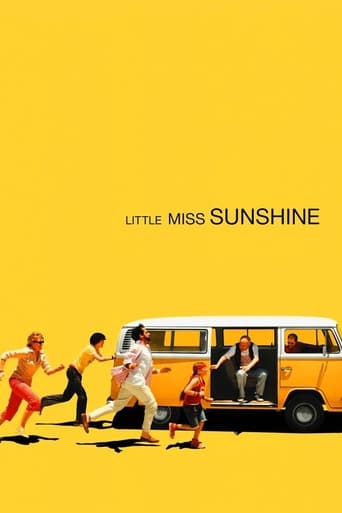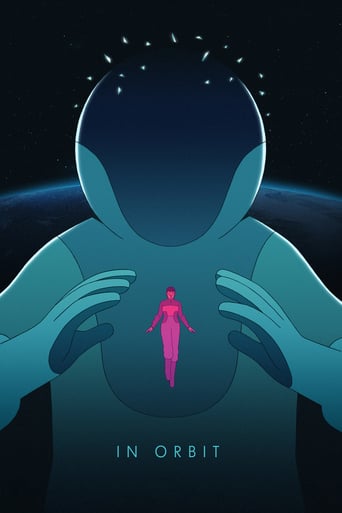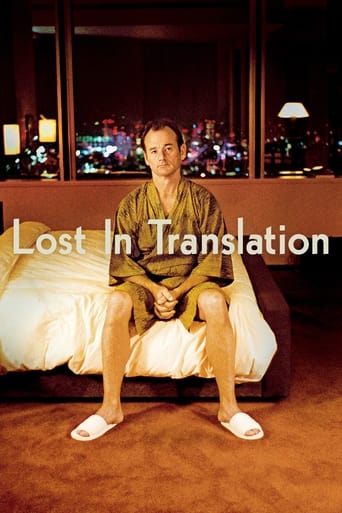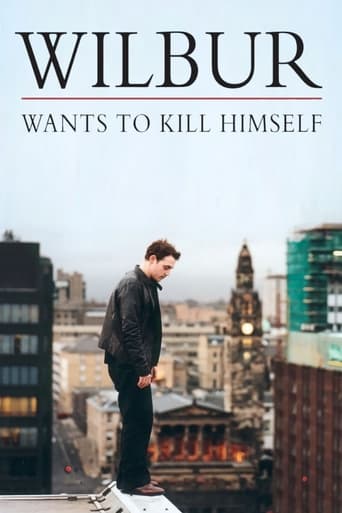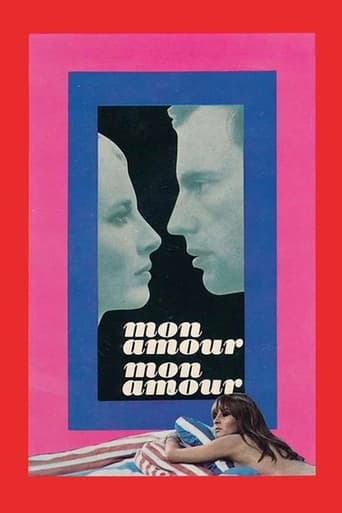Julie Walking Home (2002)
Julie's son is dying of cancer and her marriage falling apart. She goes to Poland in search of a man who can heal using his hands. Julie finds not only a magical cure for her son, but also comes across a love so pure it begins to heal the aching in her heart.
Watch Trailer
Cast


Similar titles
Reviews
Very disappointing...
Awesome Movie
The performances transcend the film's tropes, grounding it in characters that feel more complete than this subgenre often produces.
This movie was so-so. It had it's moments, but wasn't the greatest.
I caught this on City TV last night (Feb 16th, 2008) when flipping through the channels, and even though I had missed the first 30 minutes of this film, I was compelled to stop on that channel and watch it! I found the plot to be riveting, I couldn't turn away! ***Please be warned my review contains spoilers - If you haven't seen the film yet, please stop reading now*** I was drawn in by several factors - the disintegration of Julie & Henry's relationship; the illness and impending death of their son; the mystical, magical "healer" character; the ensuing relationship between Julie & Alexei. I was so fascinated by all of these concepts unraveling at once! I kind of disliked how Alexei abruptly left, when he found he couldn't heal the boy. It begged so many questions, such as "Is it just THAT boy he cannot heal? Or has he totally lost his powers?", and "What made him lose his powers? Giving in to his desire for sex & love? Or did he lose his powers when he impregnated Julie? Did his healing 'force' leave his body through ejaculation?" Also, when the film cuts to the final scene, where Julie's pregnancy is obviously going along nicely, and even though their son's death is imminent, they appear to be a reunited, happy family again. Nothing was shown to describe how the family got back to this state again.. it begged more questions, such as "When & How did Julie & Henry get so friendly with each other again?" and "How did they let go of all of the bad feelings and bad blood between them, and become so loving again?" and "Is the baby going to have Alexei's healing powers?" But, even though I seem to prefer a film that "spells it all out" for me, I loved this film BECAUSE it begged all of those questions, BECAUSE it left me pondering, wondering, thinking, worrying... It truly IS a thought-provoking film and I love when I can watch a film and still be affected by it, and still be thinking about it, days later. This film is definitely one of those films!
For me the ending was the point of the entire movie! That in fact, we are misled through the whole movie by the fact the her son is sick, and there's The Healer, so we all think that the healer is healing her son. And that's where we are wrong. He is a healer, and the person he was meant to heal was HER. Not the boy. Her son get's sick, yes, but why do we, the living, automatically think that the best thing is for him to survive? If you look at the mother in the beginning when she just finds out her son is ill and dying, you can see that she is in no condition to let go, especially because she has no source of comfort with her husband just having cheated on her. We even see her begging her son to not die. So she's willing to fight tooth and nail for her son to live, but also in a way for her soul and spirit to survive. That is where the healer comes in, and also maybe why he is able to spot her in that huge crowd as someone needing him. Not because of her son, but perhaps even unknownst to him, because healing her is going to require more from him than he's ever given before.Look also at the way she goes about her relationship with the healer. It's not your average affair. She's forgiven her husband, and is not doing it to spite him, and tells him about Alexai, she even admits to not understanding it. And on Alexai's side, if you look at the fact that whenever he heals someone it takes something out of him, this was his biggest healing mission ever. Because to do it, he had to give up his life as he knew it, without knowing the reason why, but just by following his instinct and what he feels he was called to do. He has sex for the first time, impregnates her, and then it completely makes sense that when her son's illness comes back, Alexai's healing powers are gone. Because that was never what he was meant to do. He healed that family, and specifically the mother, by healing her spirit enough for her to let go of her son. And in the end, she is able. She let's him go, and doesn't beg him to stay for her sake like she did before. It's brilliantly written, because it challenges what we think we know about dying, and living. And most of all it illustrates the immense power of spiritual healing.
I enjoyed 90 percent of this film but the ending is awful. I think it can all be summed up by the incredibly airy last three words of dialogue: "You smell nice." Better to have have no dialogue at all. "You smell nice"? Please. Other than that the film explored a little bit into the mystical healing thing but moreover was about faith, family, adultery, etc. Having my first child born to me just seven months ago, I was much more moved by images of her sick child than I probably would have been before I was a parent. The film could have gone and developed other themes a bit better. Some scenes toward the end seemed a bit superfluous. All in all, at least "Julie" is a cutie and easy of the eyes, plus I have to imagine if I met her in person I would probably be inclined to tell her, "you smell nice."
Having never seen a picture by this particular director before, but having enjoyed Miranda Otto's performance in LoTR, I gave this movie a chance when I saw in on the Sundance Channel a year or so ago. Since then, I have seen it three more times, and have concluded that even though it does not have a technically typical or logical resolution and plot, it is so rife with talented performances, excellent directing and powerful messages that the seemingly empty conclusion must be overlooked.It is true that there does not seem to be a clear focus in this film. One is not sure which character to focus on. But unlike other films that are stylistically and objectively similar to this, the message that one is to focus on is quite clear. The plot runs more like a realistic set of events. There isn't always a clear start and finish.The message, though, I think, is that everything has a consequence. Perhaps this is more conspicuously presented in this film than in real life, with mystical and miraculous happenings, that seems to be what it's creator wishes to say about life. (This synopsis is less to tell the plot, and more the connections) Julie's son, Nicholas, collapses. She doesn't take him to the doctor or a hospital, but instead goes home to discover her husband having an affair. Their relationship is destroyed, while Nick's collapse proves to have been more than an accident; he has contracted cancer. It is clear that Julie's anguish perfects at Henry for his affair, but also at herself for not having taken him to a professional to begin with. Already a loop has formed.And so her father, a bitter Polish Catholic, in the middle of this presents his Polish mail-order bride, who tells Julie of a Russian Faith Healer, Alexy, who may be able to save her son. He does, and in the process falls in love with Julie. When Julie returns to Canada, she finds that her father's bride has left him alone, though not before leading her son to a complete recovery. As Alexy follows Julie home, and a very passionate affair is begot, Nicholas becomes ill once again. This time, possibly do to his loss of virginity and redirector passion towards Julie, Alexy cannot heal Nick again. Thus Julie has created a similar loop that the film began with, her affair possibly producing the tragedy all over again.Yet Julie becomes pregnant by Alexy, and returns to Henry, who, we assume, has forgiven her, and we also left to assume that they go on with their lives, doing their best to support Nick's life as long as possible. And so, it seems that the message is that everything is connected. Everything you do in your life begets something else, creates a ripple.But what is presented by the opening scene is a different interpretation of this message. More specifically, the movie tells us that for every life saved, one cannot be. A small Alexy saves a man incapacitated with pain, but not the already deceased woman. While Nick lived, Julie's marriage did not, and neither did her father's. While Julie's love lived, Nick did not.This relates to another theme of faith and religion, in that in religion the idea that there are always consequences for are actions is a very important concept. The baptism of her children and ordeal over Julie's wounded Catholicism shows this, as well as the ground of faith by which Julie believes Alexy can heal her son. In faith people believe that what they do for good will produce good in kind. But in love, consequences are not so easily defined. Thus neither Henry nor Julie see the consequences in their affairs. In love, reciprocation is immediate, and one is not acting in the objective of creating consequences or retribution or rewards.I believe that such complicated messages are well presented in the bare simpleness of Holland's direction, and in the purely fantastic performances. The children's roles are written beautifully in a world of film in which children are merely adults with small voices, and the young actors are astonishingly skillful and talented in their presentation of these roles. Mirando Otto gives a stunning performance, stealing the movie with the believability and passion of her character. Lothaire Bluteau is also quite brilliant, presenting the almost sheepish, yet amazingly gifted Alexy with a natural charm and ease. Willaim Fichtner tackles the difficult role of the supposed "bad guy" with grace, insuring that his character is not taken just for his actions, but is given a depth as well.All in all, my favorite part of this movie is that no one is the bad guy, and no one is the good guy. they all make mistakes, and that is true in real life. And like adults, they realize there mistakes, and that they are things they must live with. I believe this is a rather excellent movie, when looked at from the right angle.

